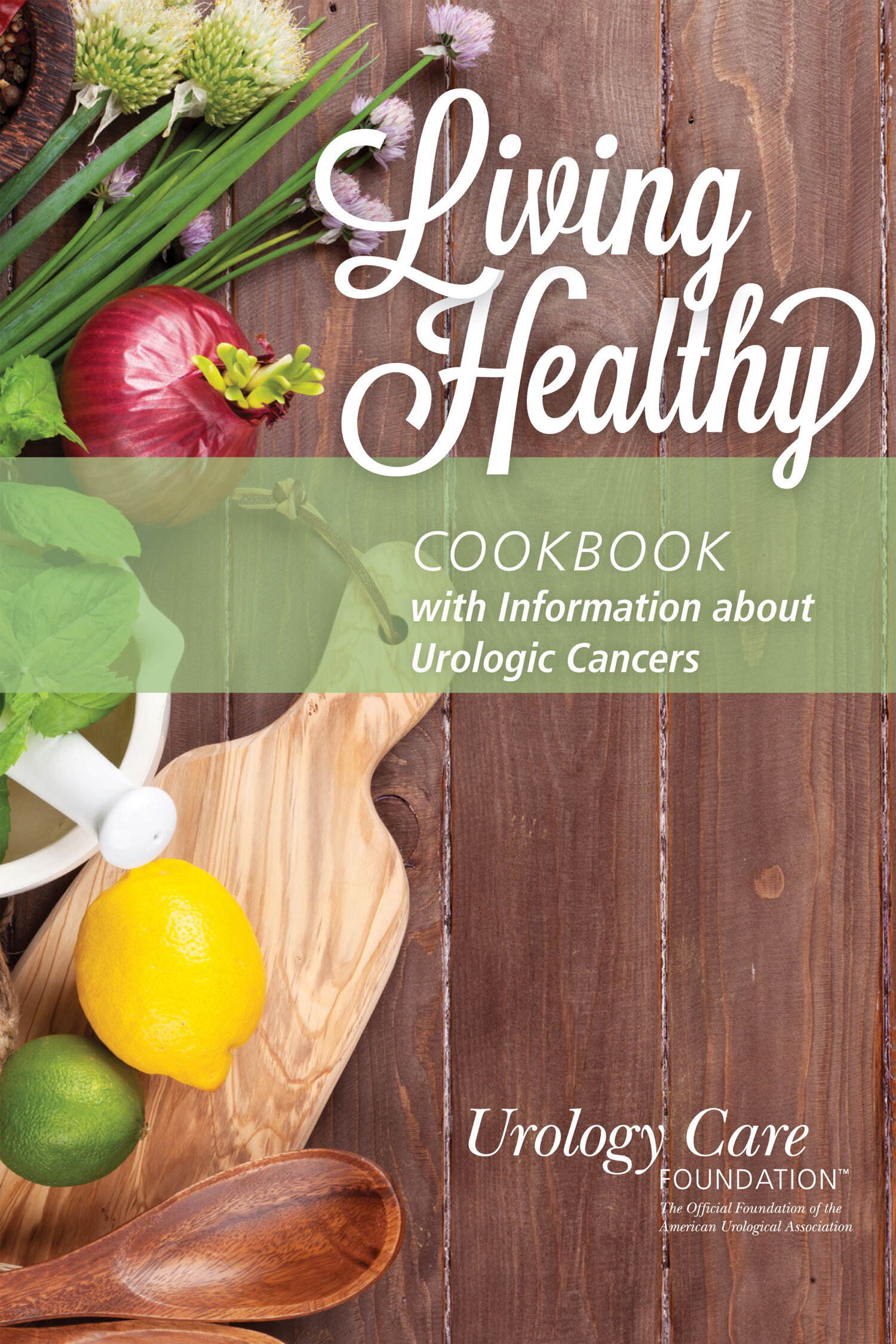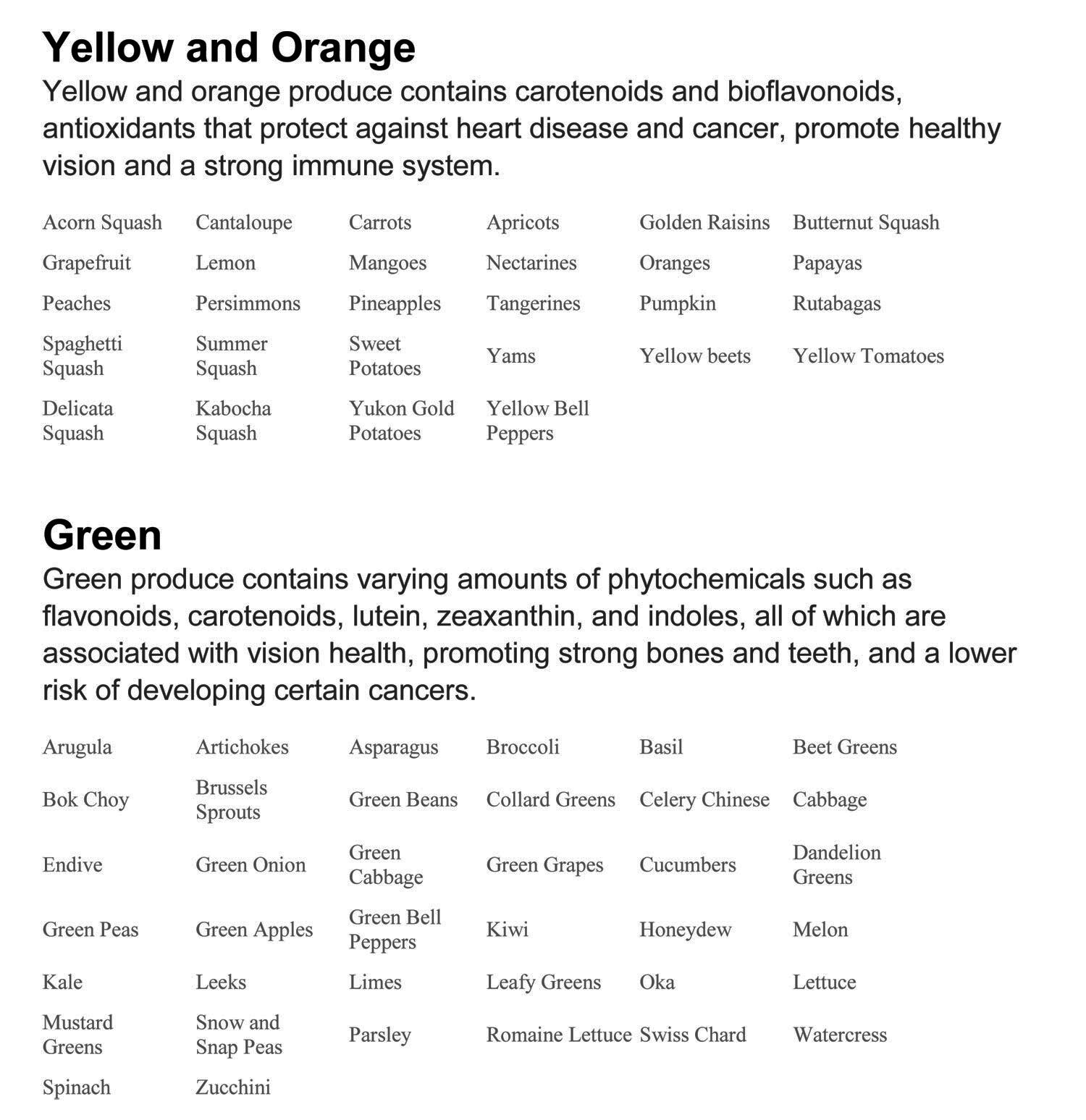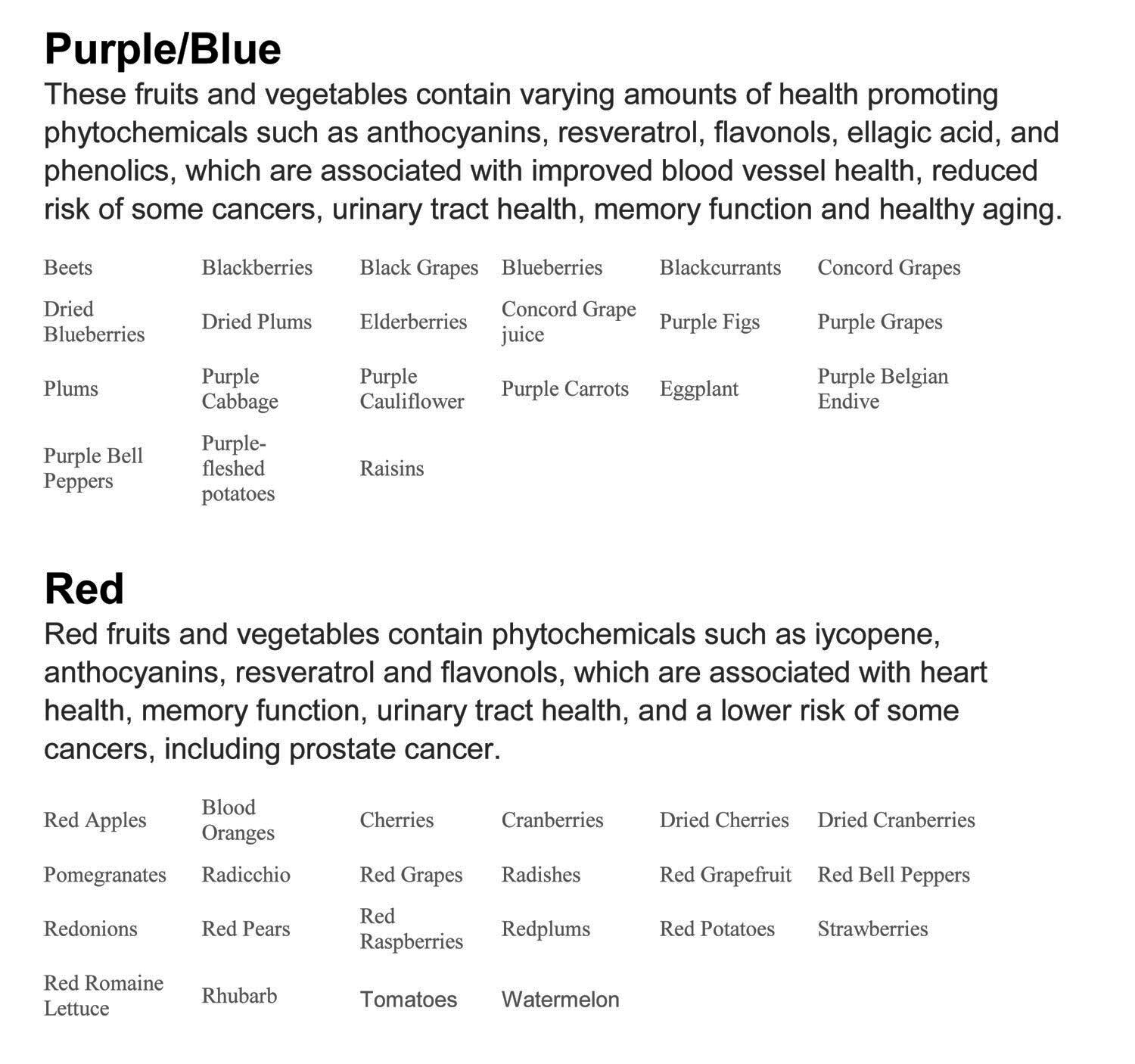Healthy Eating Resources, Recipes, & Research for Cancer Survivors
7 steps to better nutrition habits for cancer survivors - Mayo Clinic
"For people diagnosed with cancer, is one diet better than another? A Mayo Clinic expert says it's not about one food but instead eating patterns that emphasize a predominantly plant-based diet that is high in fiber."
What changes can you make to your eating plan moving forward?
The resources on this page will explain why food choices matter and you’ll find links for recipes to get started, plus you can read about research studies making news. As Carrie Daniel-MacDougall, Ph.D., assistant professor in Epidemiology at MD Anderson states, “The reality is that there’s not one ‘magic bullet’ food or nutrient that will prevent cancer,...” However, there are studies like those noted below that support how your food choices can make a difference.
According to researchers at the University of Florida,
"Cancer survivors who consumed a balanced, nutrient-dense diet had a 65 percent lower risk of dying from cancer than survivors who ate a poor quality diet, ..." - June 5, 2018
If being a home chef hasn't been your thing, a great place to start is the Cook for Your Life site, which is now part of the Fred Hutchinson Cancer Research Center and a great teaching resource designed especially for cancer survivors. If you are looking to find more of a structured meal plan to follow, Healthy Eating Plan Options & Resources under Wellness Resources features some meal plan options and related resource links.
Cheryl Leving
Healthy eating habits you can start right now - Living Beyond Breast Cancer
Gut Health: Why It’s Important - Anticancer Lifestyle Program
Memorial Sloan Kettering Cancer Center
Can a Mediterranean Diet Help Cancer Survivors? - "If you’ve had cancer, you may be wondering if you should make any changes to your diet. The Mediterranean diet is often cited for its health benefits. But is it right for you?” Alicia Gould, a clinical dietitian at Memorial Sloan Kettering Cancer Center discusses this popular eating plan.
Eating Well During and After treatment (video 4:03) - American Cancer Society
A good place to start and learn the importance of good nutrition
REGISTERED DIETITIAN NUTRITIONIST
Online Referral
Academy of Nutrition and Dietetics eatright.org
Enter your zip code, hit “Find Now,”
then click on “Specialty” to select
“Cancer-Oncology Nutrition” and scroll to the bottom to find Registered Dietitians in your area.
University of Texas, MD Anderson Cancer Center
Phytonutrients: How to eat all the colors of the rainbow
The benefits of a plant-based diet
Are food dyes unhealthy?
8 foods that impact stress
Tea and cancer prevention 101
Cancer Dietitians in the Kitchen - Henry Ford Health 2022 Cancer Survivorship Celebration
(Video)
“Henry Ford Health cancer dietitians Amy Carion and Sam Schlitt host celebrity chef Michelle Bommarito for a cooking demonstration highlighting the importance of a healthy, cancer preventing diet.”
Mayo Clinic
Will eating soy increase my risk of breast cancer? - Katherine Zeratsky, R.D., L.D.
Green Smoothie Recipe
HOW TO BREAK UP WITH SUGAR - (video 1:34)
Loma Linda University Health
Your Seasonal Guide to Cancer-Fighting Foods - "This guide helps you add each season's most nutritious anti-cancer foods to your diet."
Live It - Episode 11: Lower your Risk of Colon Cancer (video 1:56)
Live It - Episode 10: Vegetarian Diet (video 2:18) "If giving up meat entirely is too much, why not reconsider how often you eat meat?"
Processed Meats and Cancer: It’s Not Just Nitrates - Tufts University Friedman School of Nutrition
What are the Best Sources of Protein? - Anticancer Lifestyle Program
Research Reveals How to Prepare Foods to Boost Cancer-Fighting Activity
American Institute for Cancer Research
"Broccoli and other cruciferous vegetables are a top source of sulforaphane, a phytochemical (naturally occurring plant compound) that has shown strong cancer-preventive actions in lab studies. The enzyme myrosinase in broccoli is needed for the phytochemical sufulforaphane to form. Destroy the myrosinase, and sufulforaphane cannot form.” A study by Elizabeth Jeffery, PhD, a researcher at University of Illinois at Urbana-Champaign which “… compared boiling, microwaving, and steaming found that steaming broccoli for up to five minutes was the best way to retain its myrosinase. Boiling and microwaving broccoli for one minute or less destroyed the majority of the enzyme.”
Explore New Foods & Recipes!
Cook for your LIFE
Fred Hutchinson Cancer Research Center
"We teach healthy cooking to people touched by cancer"
Explore cooking videos and over 1,000 recipes
courtesy of this non-profit organization dedicated
to helping cancer patients create
healthy and delicious meals at home.
Recipes - Dana Farber Cancer Institute
Browse their collection of healthy recipes that also offer nutrition tipsRecipes - Cancer Nutrition Consortium
"Carefully crafted by chefs, nutritionists, and cancer patients using the CNC’s research-based guidelines, these unique recipes offer functional nutrition and great taste for those undergoing cancer treatments."Recipes - Oncology Nutrition
(A division within the Academy of Nutrition and Dietetics)Flavour & Nutrition - Life Kitchen and World Cancer Research Fund
This free recipe book also available to download, features 15 flavorful and nutritious dishes to help people who have experienced taste changes as a result of cancer, enjoy food again.
3 Difference Makers to upgrade your cancer-fighting kitchen with Rachel Beller, MS, RDN - Living Beyond Breast Cancer
Find out the benefits to adding watercress, broccoli sprouts, and Nori to your diet
CancerSmart: In the Kitchen with MSK - Memorial Sloan Kettering (Video 25:11)
This recorded webcast shares advice and tips to help you during treatment and recovery. Includes a demo of 3 recipes: Oven-Baked Chicken Fajitas - Black Beans, Corn, and
Quinoa Salad - Breakfast Egg Cups.
The Cancer-Fighting Kitchen Course ($97 fee for lifetime online access)
Rebecca Katz’s online course based on her award-winning book provides up-to-date food science, recipes, and culinary techniques you can use during and after treatment. The one time fee enables you to receive updates when new materials are added.
The Living Kitchen: Nourishing Whole-Food Recipes for Cancer Treatment and Recovery - ($20 paperback, $15 on Kindle)
By Nutritionists, Sarah Grossman & Tamara Green - livingkitchenwellness.com
More than just a cookbook with recipes, you'll also find a mini-course in cancer nutrition, menu planning guidance on what to eat before, during and after treatment, plus how to stock your kitchen
What Are the Benefits of Turmeric — and Can It Be Used to Prevent or Treat Cancer? Here’s What the Science Says - Memorial Sloan Kettering Cancer Center
Why turmeric is so powerful and how to cook with it - Anticancer Lifestyle Program
Cancer Nutrition Consortium cancernutrition.org
This Non-profit “… brings together experts in medicine, culinary and healthcare to improve the food experience of people during cancer treatment and recovery.”
Their first cancer nutrition cookbook features 45 expertly-crafted recipes and is designed for those undergoing cancer treatment or recovery. Cost $24.95
Healthy & Delicious Cookbook
Loma Linda University Health offers this FREE 60 page cookbook with recipes & cancer-fighting food facts. Download a copy or view online.
For additional resources on lifestyle eating plan options including the Mediterranean Diet as well as healthy recipe ideas moving forward after treatment, please visit the link below.
FOR UROLOGIC CANCERS
“This educational cookbook has recipes from celebrity chefs and is designed to help those affected by urologic cancers.” - Available free for download at UrologyHealth.org.
Plant Phytochemicals
"Eat the Rainbow"
The graphic below from Loma Linda University Health Wellness Team explains the importance of these naturally occurring plant phytochemical compounds thought to be responsible for protective health benefits and why you should “Eat the Rainbow” by including a variety of these veggies and fruits in your daily meal plan!
Nutrition & Diet Related Research for Cancer Survivors
August 19, 2024 - Preliminary study shows potential of Manuka honey as a nutraceutical for breast cancer - UCLA
"UCLA researchers found Manuka honey significantly reduced tumor growth in mice with ER-positive breast cancer cells by 84% without affecting normal breast cells or causing major side effects."
May 13, 2024 - Prostate Cancer Study: More Health Benefits from Plant-Based Diet - University of California San Francisco
"A study of more than 2,000 men with localized prostate cancer found that eating a primarily plant-based diet was associated with a 47% lower risk that their cancer would progress compared with those who consumed the most animal products."
April 22, 2024 - Observing a Healthy Diet May Reduce Risk of Cardiovascular Disease in Breast Cancer Survivors - Oxford University Press
"The investigators discovered that the patients whose diets were most similar to the DASH [Dietary Approaches to Stop Hypertension] diet at the time of their breast cancer diagnosis had a 47% lower risk of heart failure, 23% lower risk of arrhythmia, 23% lower risk of cardiac arrest, 21% lower risk of valvular heart disease, and 25% lower risk of venous thromboembolic disease compared with those whose diets were least aligned with the DASH diet."
Feb. 13, 2024 - Plant-Based Diet Tied to Improved Sexual Health in Men Treated for Prostate Cancer - NYU Grossman School of Medicine and the Harvard T.H. Chan School of Public Health
"A diet that limits meat and dairy but is rich in fruits, vegetables, grains, and nuts is linked to less erectile dysfunction, urinary incontinence, and other common side effects seen in patients who had prostate cancer, a new study shows."
Oct. 9, 2022 - Mediterranean diet improves immunotherapy response rates and progression-free survival in advanced melanoma, new study suggests - United European Gastroenterology
"A Mediterranean diet, containing mono-and polyunsaturated fats from olive oil, nuts and fish, polyphenols and fibre from vegetables, fruit, and wholegrains, was significantly associated with an improved response to immunotherapy drugs called Immune Checkpoint Inhibitors (ICIs). ICIs, which have been highly successful in treating melanoma, work by blocking immune system checkpoints, which then force the body’s own T-cells to attack cancers." Study researchers also found "... a Mediterranean diet was significantly associated with progression-free survival at 12 months."
Feb. 28, 2021 - Healthy gut microbiome improves success of cancer treatment - King’s College of London
"Less than 50% of patients respond positively to immunotherapy for melanoma so finding strategies to increase the number of positive responders is crucial." According to Professor Tim Spector, "The ultimate goal is to identify which specific features of the microbiome are directly influencing the clinical benefits of immunotherapy to exploit these features in new personalized approaches to support cancer immunotherapy. But in the meantime, this study highlights the potential impact of good diet and gut health on chances of survival in patients undergoing immunotherapy."
Dec. 23, 2021 - High-fiber diet associated with improved progression-free survival and response to immunotherapy in melanoma patients - University of Texas MD Anderson Cancer Center
"Patients with melanoma who reported eating more fiber-rich foods when they began immunotherapy treatment survived longer without cancer growth than patients with insufficient dietary fiber intake, according to new research from The University of Texas MD Anderson Cancer Center published today in Science. The benefit was most noticeable in patients who did not take commercially available probiotic supplements. Parallel pre-clinical studies supported the observational findings."
Oct. 20, 2021 - Can eating nuts have health-protective effects for breast cancer survivors?
"There was a dose-response pattern in the relationship between nut consumption and risk of breast cancer recurrence or death, with those consuming the highest amounts having the lowest risks. Also, the association was stronger for survivors who had earlier stages of breast cancer than for those who had later stages."
June 2, 2021 - Researchers Find Evidence That Diet Can Alter the Microbiome to Affect Breast Cancer Risk - Wake Forest School of Medicine
"Researchers also conducted a double-blind placebo-controlled clinical trial with breast cancer patients. Patients either received placebo or fish oil supplements for approximately two to four weeks before lumpectomy or mastectomy.
Results showed that fish oil supplementation significantly modified the breast microbiome in both non-cancerous and malignant breast tissue. For example, scientists found longer-term administration of fish oil supplements (four weeks) increased the proportional abundance of Lactobacillus in the normal tumor-adjacent breast tissue. Lactobacillus is a genus of bacteria shown to decrease breast cancer tumor growth in preclinical models, suggesting potential anti-cancer properties of this intervention.”
March 20, 2021 - White button mushrooms could slow progression of prostate cancer - Beckman Research Institute of City of Hope
While both of the studies referenced in this article involved either Mushroom powder or extract form, I thought it was worth sharing that researchers found "The chemicals present in white button mushrooms may slow the progression of prostate cancer..."
March 9, 2021 - Not so sweet: UB study finds increased risk of death among breast cancer patients who drink sugar-sweetened soda - University at Buffalo
“Compared to women who never or rarely drank non-diet soda, those who reported drinking non-diet soda five times or more per week had a 62% higher likelihood of dying from any causes, and were 85% more likely to die from breast cancer specifically.”
Jan. 7, 2021 - Mediterranean diet may decrease risk of prostate cancer progression for men on active surveillance - The University of Texas MD Anderson Cancer Center
"After adjusting for factors known to increase risk of cancer getting worse over time, such as age, prostate-specific antigen (PSA) and tumor volume, men with a diet that contained more fruits, vegetables, legumes, cereals and fish had a reduced risk of their prostate cancer growing or advancing to a point where many would consider active treatment."
Photo by: Mike Kenneally on Unsplash/@asthetik
Sept. 17, 2020 - Daily coffee consumption associated with improved survival in patients with metastatic colorectal cancer
“'It’s known that several compounds in coffee have antioxidant, anti-inflammatory, and other properties that may be active against cancer,' says Dana-Farber’s Chen Yuan, ScD, the co-first author of the study with Christopher Mackintosh, MLA, of the Mayo Clinic School of Medicine." Researchers “… found that in 1,171 patients treated for metastatic colorectal cancer, those who reported drinking two to three cups of coffee a day were likely to live longer overall, and had a longer time before their disease worsened, than those who didn’t drink coffee” and the benefits applied for those either drinking caffeinated and decaffeinated coffee.
June 2, 2019 - Tart cherry shown to decrease joint pain, sore muscles in certain breast cancer patients
“This randomized, double-blind trial compared the consumption of 1 ounce of tart cherry concentrate in 8 ounces of water daily for six weeks with a placebo group in women with stage 1, 2 or 3 non-metastatic breast cancer.” Study results revealed "Patients who completed the trial recorded a 34.7% mean decrease in pain compared to 1.4% in the placebo group."
Feb. 28, 2018 - Nut consumption may aid colon cancer survival
"The study followed 826 participants in a clinical trial for a median of 6.5 years after they were treated with surgery and chemotherapy. Those who regularly consumed at least two, one-ounce servings of nuts each week demonstrated a 42% improvement in disease-free survival and a 57% improvement in overall survival." Tree nuts include almonds, walnuts, hazelnuts, cashews, and pecans. Peanuts are actually in the legume family of foods.











